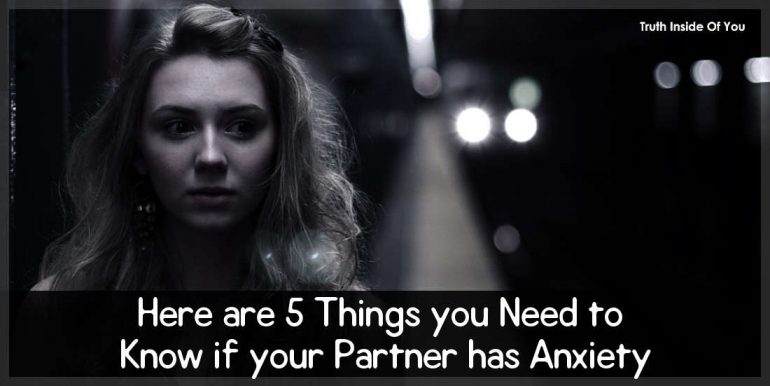Do you suffer from anxiety? If so, you’re not alone. According to recent statistics, approximately 18.1% of people age 18 and older have anxiety, which amounts to 40 million people in the US alone.
For those who don’t have anxiety, it can be difficult to understand just how much havoc it can wreck on someone’s life.
For this reason, it can be hard to help an anxiety-ridden person when you don’t know what they’re going through.
Here are 5 things you need to know if a closed one of yours suffers from anxiety:
1. They suffer in their mind, their body and emotionally.
Anxiety isn’t just about racing negative thoughts in someone’s mind, it can also place a serious burden on the physical body. It could cause headaches, cold sweats, stuff muscles and flushing of the face as well as a host of other side effects.
It really does affect every part of their life so make you sure you check in and try to understand what they’re feeling.

2. They might also have depression.
According to statistics, about half of those with an anxiety disorder also have depression. This can cause serious problems for an individual because anxiety is telling them to be on high alert as their is a threat, while depression is telling them to give up.
3. They’ll need alone time.
Anxiety makes it difficult to be social and interact with others, causing one to lose energy quickly. Just like an introvert, an anxious person needs time alone to recharge.

4. They still love you.
Just because sometimes they seem moody or stressed doesn’t mean they don’t love you. They don’t mean to be distant, it’s just their anxiety that’s causing them to stay away. Just remember to offer your support when they need it and they’ll never forget it.
5. They don’t want attention.
Many people claim that people simply “fake” having a mental illness to get attention. This couldn’t be further from the truth. If they tell you they have a mental illness, they are seeking compassion and support, rather than attention. They are letting you know that they are going through a tough time and they need you to be patient with them.

Nobody asked for anxiety and it’s not something that anyone wants. The best thing you can do is to offer your support and patience and be there for them when they need it.









